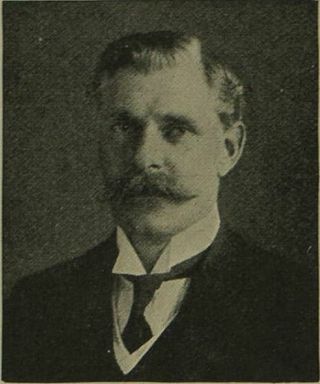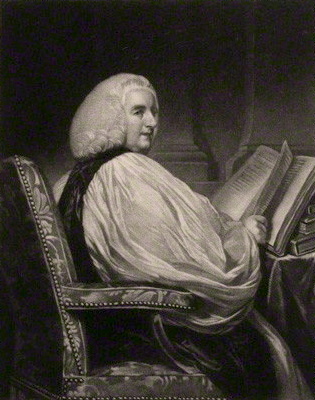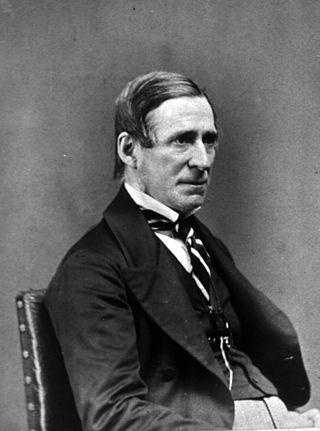
General Sir Henry Robert Ferguson Davie, 1st Baronet DL, known as Henry Ferguson until 1846, of Creedy Park, Sandford, Devon, was Liberal Member of Parliament for Haddington in East Lothian, Scotland, 1847 to 1878 and an army officer.

Baron Islington, of Islington in the County of London, was a title in the Peerage of the United Kingdom. It was created in 1910 for Sir John Poynder-Dickson, 6th Baronet, Governor of New Zealand from 1910 to 1912.

Baron Rokeby, of Armagh in the County of Armagh, was a title in the Peerage of Ireland. It was created in 1777 for The Most Rev. Dr Richard Robinson, Church of Ireland Lord Primate of All Ireland and Lord Archbishop of Armagh, with remainder to his brothers and his father's second cousin Matthew Robinson and the heirs male of their bodies. In 1785 he also succeeded his elder brother as 3rd Baronet according to a special remainder. Lord Rokeby never married and was succeeded in the barony and baronetcy according to the special remainders in the letters patent by his third cousin Matthew Robinson-Morris, the second Baron and fourth Baronet. He was the son of Matthew Robinson, son of Thomas Robinson, son of Sir Leonard Robinson, brother of William Robinson, great-grandfather of the first Robinson Baronet and the first Baron Rokeby. The second Baron was an academic, politician and eccentric. Born Matthew Robinson, he assumed by Royal licence the additional surname of Morris in 1746 on succeeding to the Mount Morris Estate in Monks Horton, Kent through his mother. He never married and was succeeded by his nephew Morris Robinson, the third Baron. He was the elder son of Morris Robinson.

There have been two baronetcies created for people with the surname Tollemache, or Talmash, one in the Baronetage of England and one in the Baronetage of Great Britain.
There have been two baronetcies created for persons with the surname Proby, one in the Baronetage of England and one in the Baronetage of the United Kingdom. The first creation is extinct while the second creation is extant.

There have been twenty one baronetcies created for persons with the surname Williams, eight in the Baronetage of England, three in the Baronetage of Great Britain and ten in the Baronetage of the United Kingdom. Only six of the creations are extant as of 2017.
There have been four baronetcies created for persons with the surname Hall, one in the Baronetage of Nova Scotia and three in the Baronetage of the United Kingdom. Three of the creations are extant as of 2010.
There have been four baronetcies created for persons with the surname Bell, all in the Baronetage of the United Kingdom. One creation is extant as of 2007.

There have been three baronetcies created for persons with the surname Paget, all in the Baronetage of the United Kingdom. A fourth created for the Bayly family in the Baronetage of Ireland is now held by the Paget family. Three of the creations are extant.
There have been two baronetcies created for persons with the surname Gooch, one in the Baronetage of Great Britain and one in the Baronetage of the United Kingdom.

The Payne, later Payne-Gallwey, and from 1967 Frankland-Payne-Gallwey Baronetcy, was a title in the Baronetage of the United Kingdom. It was created on 8 December 1812 for General William Payne, Governor of the Leeward Islands. Payne-Gallwey was the half-brother of Ralph Payne, 1st Baron Lavington, who also served as Governor of the Leeward Islands.
There have been two baronetcies created for persons with the surname Coghill, both in the Baronetage of Great Britain. One creation is extant as of 2008.
General Sir William Houston, 1st BaronetKC was a British Army officer and Governor of Gibraltar. Houston joined the army in 1781, and by the start of the French Revolutionary War was a captain. He fought in the Flanders campaign before being promoted to major in 1794. As a lieutenant-colonel he fought at the Capture of Minorca and at the sieges of Alexandria and Cairo. Promoted to colonel in 1802, Houston fought in the Walcheren Expedition of 1809 before being promoted to major-general.

The Smith, later Eardley Baronetcy, of Hadley in the County of Middlesex, was a title in the Baronetage of the United Kingdom. It was created on 22 December 1802 for Culling Smith. He was the son of Thomas Smith, a London merchant. The second Baronet married the Honourable Charlotte Elizabeth, daughter of Sampson Eardley, 1st Baron Eardley. Their son, the third Baronet, assumed by Royal licence the surname of Eardley in lieu of his patronymic in 1847. He was a Christian campaigner for religious freedom and for Protestant causes. The title became extinct at the death of his son, the fourth Baronet, in 1875.
Sir Thomas George Fermor-Hesketh, 5th Baronet was an English Conservative politician who sat in the House of Commons from 1862 to 1872.
There have been two baronetcies held by people with the surname Lamb, both in the Baronetage of Great Britain. Both creations are extinct.
The Brabazon Baronetcy, of Newpark in the County of Mayo, was a title in the Baronetage of Ireland. It was created on 16 December 1797 for Anthony Brabazon. He was the eldest son and heir of George Brabazon, of New Park in County Mayo, fourth in descent from Sir Anthony Brabazon of Ballinasloe Castle, younger brother of Edward Brabazon, 1st Baron Ardee, ancestor of the Earls of Meath. His son, the second Baronet, represented County Mayo in Parliament. The title became extinct on his death in 1840. Brabazon Park was eventually inherited by Hugh Brabazon Higgins, only son of Luke Higgins of Castlebar by his second wife Catherine, sister of Sir Anthony Brabazon. He was a Captain in the 15th Hussars, and adopted the surname of Brabazon by royal licence of 15 September 1852. He died in 1864, leaving issue.

There have been two baronetcies created for persons with the surname Houston, one in the Baronetage of Nova Scotia and one in the Baronetage of the United Kingdom, both extinct.
Lieutenant-General Sir John Bruce Hope, 7th Baronet was a Scottish soldier and politician who was 7th Baronet Hope of Craighall.
The Preston baronetcy, of Beeston St Lawrence in the County of Norfolk, was created in the Baronetage of the United Kingdom on 30 May 1815 for Thomas Hulton Preston. Born Thomas Hulton, he was the son of Henry Hulton and his wife Elizabeth, daughter of Isaac Preston of Beeston St Lawrence, whose estates he inherited. In 1804 he assumed the surname of Preston in lieu of his patronymic. He was a militia colonel in the Norfolk volunteer infantry.









